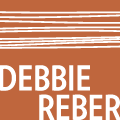 If you’ve been following my Writer Unplugged series, you know my work-in-progress—a personal memoir for the adult market—is out the door and my agent is busily working to find the right home for it. So, after months and months of writing, pushing through blocks, setting personal deadlines, and reworking, tweaking, and finalizing, I find myself playing the dreaded waiting game.
If you’ve been following my Writer Unplugged series, you know my work-in-progress—a personal memoir for the adult market—is out the door and my agent is busily working to find the right home for it. So, after months and months of writing, pushing through blocks, setting personal deadlines, and reworking, tweaking, and finalizing, I find myself playing the dreaded waiting game.
If you’ve ever been in the situation of waiting for word on a writing submission (or any creative project for that matter)—from an agent, an editor, a contest, a conference—you know that this particular phase…WAITING…is possibly the most difficult of all.
I’ve had friends who know I’ve written many books react to my insecurity quizzically, their thinking that putting my work out there shouldn’t hit me so hard anymore. But here’s the thing I’ve realized over the past ten-plus years of writing and pitching book proposals—it never stops being hard. It’s still fuel for the post-project blues, insecurity, doubt, and any other number of less-than-desirable emotional states. But what has changed for me is my ability to move through this phase without going to the dark side in which I curl up in a fetal position and swear off ever writing a book again.
Surviving the waiting game isn’t easy, but it’s doable when you have the right strategies. Here are my tips for getting through the uncertainty and doubt of waiting without losing your mind:
1. CLOSE OUT THE PROJECT…FOR NOW: After I’ve sent something out, I completely remove the project from my plate. I’ve found (and seen in other writers) that continuing to tinker with a project that is out for submission only heightens anxiety and can result in feeling almost obsessed with the outcome, either because you continue to find the project so strong you can’t imagine why it’s not being well-received OR because you discover something you want to change and now it’s too late. To take away temptation, I literally put my related folders and notebooks away, out of sight, and treat the project as if it’s 100 percent completed.
2. SHIFT FOCUS TO ANOTHER CREATIVE PROJECT: When a piece of writing is out for submission, I’m left with a big, gaping creative void. To fill this (after a week or so of “recovery” in which I laze around the house, nap at will, and devour more than my usual dose of Netflix), I dive into one or more new creative projects so I have somewhere to channel my creative energy. For me, this might mean catching up online learning or working on business development for my coaching, or it might be dreaming and scheming a brand new project (which is what I’m doing right now… a podcast). This shift and immersion into something new can reframe the not-knowing into a time of possibility and openness (and yes… even fun).
3. STOP OBSESSING: I know that my obsessing over and creating intricate scenarios in my mind about what might be going on with my project in the big, wide world is not going to in any way change the outcome. Neither will harassing my agent. It’s out of my hands. Repeat. It’s out of my hands. Owning this mantra is a game changer.
4. HAVE A PLAN B: Part of what makes waiting so hard is not knowing what the outcome will be, which in turn leads to a sense of loss of control, which in turn feels like crap. Developing a plan B—a plan of action for every possible outcome (getting or not getting the agent, selling or not selling the book, etc.) gives you a sense of control and is an antidote to worst-case-scenario-mind-swirling syndrome. In essence, it means, you’ve got this, no matter what.
5. LEAN ON PEOPLE WHO CAN HANDLE YOUR CRAZY: Having one or two safe people you can call at your lowest moments, people who will be willing to listen to your moans and insecurities and rants and wallowing, is key. Give these people a heads up, and consider telling them what it is you need to hear so they can feed you the right comforting words.
 6. PRIORITIZE EXERCISE & SELF-CARE: Cash in on those natural endorphins that come from a good run or workout and get your butt out the door to exercise no matter how blah you’re feeling. Indulge in other types of self-care too, whatever that looks like for you.
6. PRIORITIZE EXERCISE & SELF-CARE: Cash in on those natural endorphins that come from a good run or workout and get your butt out the door to exercise no matter how blah you’re feeling. Indulge in other types of self-care too, whatever that looks like for you.
7. REMEMBER THAT IT’S NOT PERSONAL: Sharing a creative project with the world for evaluation can be especially grueling because it can all feel so personal, especially when there’s no feedback on how your project is being received or the feedback you’ve gotten isn’t what you were hoping for. I’ll spare you the now-familiar statistics about wildly famous books being rejected multiple times before connecting with the right person, but you know the truth—rejection is not personal. Generally speaking, passes don’t speak to a project’s merits—they speak to the lack of a connection between a piece of writing and an agent or editor’s passions or interests or knowledge of what the market will bear.
8. TRUST IN YOUR VISION: Lastly, believing in your project and staying focused on your highest intentions for what it can do in the world is key. Find ways to stay connected to your personal why for your writing and filter out the rest of the noise.

